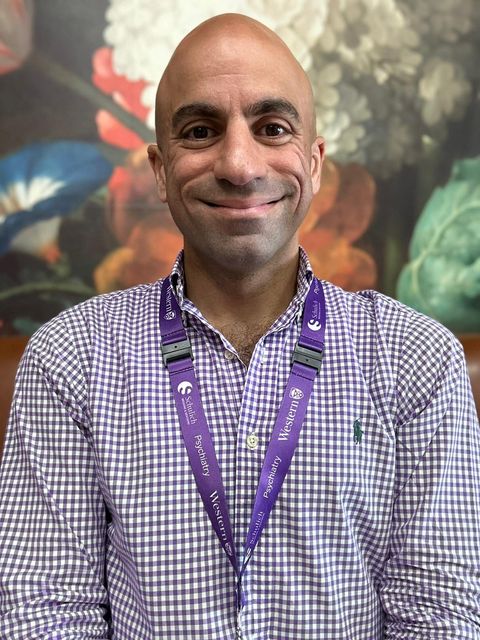A British-Lebanese professor whose family have no plans to leave Lebanon said he is prepared to go there himself and “carry” his elderly father out of the country.
Ahmed Hankir, 42, a professor in psychiatry, visited his parents in Lebanon last month and described the atmosphere there as “sombre”, as fighting continues between Hezbollah and Israel.
Mr Hankir was born in Belfast, Northern Ireland, after his parents moved from Lebanon to the UK in the 1980s, and has strongly encouraged his family, who hold British passports, to leave the country and come to England.
His mother and his father, who is in his 70s and has mobility problems, have fled their home in Sidon, south Lebanon, to drive north to the capital, Beirut, where his sister lives.
Professor Ahmed Hankir, who specialises in psychiatry, said he would fly to Lebanon to bring his parents to safety himself if the situation worsens (Ahmed Hankir/PA)
Mr Hankir’s parents, who do not wish to be named, intend to stay in Beirut with his sister – but he said he would fly to Lebanon to bring them to safety himself if the situation worsens.
“If I have to go there myself, I will,” Mr Hankir, a visiting professor at Cardiff University, told the PA news agency.
“If I have to carry my father, if I have to give him a piggyback or whatever, then I’ll do it. And I mean that because it’s getting increasingly more dangerous.”
Mr Hankir, who divides his time between Crystal Palace, south London and London, Ontario, in Canada, spoke to his sister via video call on Wednesday and said she was “distraught” and “crying inconsolably” about their parents’ safety.
“I think it’s safer in Beirut than it is in Sidon, but now you hear that the Israeli military is attacking Christian majority areas,” he said.
“You might be lulled into a false sense of security that if you’re in an area where there’s no Hezbollah presence, then you would be safe.
“But if they’re attacking Christian majority areas then it can seem like nowhere is safe in Lebanon.”
He said his sister “still gets nightmares and traumatic flashbacks” from when she was evacuated from her home during the 2006 Hezbollah-Israel war.
The UK Government has joined allies including the US and France in calling for an immediate temporary 21-day ceasefire in Lebanon to “to provide space for diplomacy towards the conclusion of a diplomatic settlement”, but Mr Hankir said these calls should be for an immediate permanent end to the fighting.
“It’s better than no ceasefire, but not better than a permanent ceasefire,” Mr Hankir said.
“These are the calls from the international community, but will the Israeli military heed those calls?”
